Bomb kills 2 Coalition personnel, injures 5 in Manbij, Syria
Updated April 2
A car bomb in the northern Syrian town of Manbij killed two personnel from the U.S.-led Coalition against Islamic State and injured five others on Thursday, March 29.
A Friday statement from the Coalition said “two Coalition personnel were killed and five were wounded by an improvised explosive device in Syria at approximately 9 p.m. GMT [around midnight local time] March 29.”
The statement said that details surrounding the incident are “being withheld pending further investigation.”
As is usual, the statement said the names of the deceased “will be released at the discretion of the pertinent national authorities.”
The Pentagon said one of two Coalition personnel killed was American, AFP reported.
Confirmation of fatality in Syria: pic.twitter.com/pfK8Zp1buk
— Ministry of Defence ???????? (@DefenceHQ) March 30, 2018
In a statement, a U.K. Ministry of Defence spokesperson later said that “a member of the U.K. Armed Forces was killed by an improvised explosive device in Syria yesterday.”
“The individual was embedded with U.S. forces on a counter-Daesh operation when the incident occurred,” the statement said, adding that their family had been notified and that no further details could be confirmed “at this stage.”
The soldier is likely to be a member of a special operations forces regiment.
The U.K. government has never officially acknowledged that British troops are taking part in combat operations in Syria. In a reply to a parliamentary question in November 2017, Minister of State at the MoD Mark Lancaster said: “Coalition officers, including some from the U.K., carry out short term visits to Coalition locations in Syria as part of their duties, to co-ordinate Coalition support and to engage partner forces. They are not engaging directly in ground combat operations.”
Update March 31 The U.K. Ministry of Defence said in a release that the soldier killed was Sergeant Matt Tonroe from the 3rd Battalion the Parachute Regiment, where he served as part of the Sniper Platoon.
During his service, Tonroe deployed numerous times on operations to Afghanistan and the Middle East.
The Parachute Regiment provides a significant proportion of recruits to the U.K.’s elite Special Air Service, and some defense journalists have reported that Tonroe was an SAS member.
In a later statement, the U.S. Department of Defense said “Master Sgt. Johnathan J. Dunbar, 36, of Austin, Texas, died March 30 in Manbij, Syria as a result of injuries when an improvised explosive device (IED) detonated near his patrol.”
The statement said Dunbar was assigned to Headquarters, U.S. Army Special Operations Command, Fort Bragg, North Carolina, a unit designation that has in the past been used for soldiers assigned to the elite Delta unit.
Pro-YPG news agency ANHA reported that a curfew was imposed on February 26 in the town and its suburbs prohibiting motorcycles from 9 p.m. to 6 a.m. and pedestrians and cars from 11 p.m. to 6 a.m.In December, suicide bombers on motorcycles attacked checkpoints around the town, killing two people. The curfew was due to expire on March 17, but was apparently extended. On March 17, there was an explosion near the National Hospital in the town.
According to AP, Manbij Military Council leader Mohammed Abu Adel said the bomb on March 29 went off hundreds of metres from a security headquarters that houses the council just before midnight.
Two U.S. officials told Reuters that the incident took place near the town of Manbij.
AFP reported that the attack occurred in Manbij, citing the U.S. military and the Syrian Observatory of Human Rights.
A Coalition spokesperson confirmed to The Defense Post that the incident involved vehicles.
Coalition spokesperson Colonel Ryan Dillon earlier said an incident involving coalition forces was reported in Manbij but said no more information was available, the Associated Press reported.
The Los Angeles Times’ Special Correspondent in the Middle East Nabih Bulos tweeted that one activist said the involved an “SDF pickup” truck.
Update March 31 Jenan Moussa, a reporter with Al Aan TV, tweeted that the incident occurred near the Sheikh Aqeel cemetery in Manbij town center and that she had visited the site. Moussa also said witnesses told her the incident involved a Hyundai van, of a type reportedly used by the SDF.
The Defense Post had earlier asked the Coalition if the incident had occurred near the cemetery. A spokesperson said the investigation is ongoing and they had “nothing more to offer at this time.”
Moussa said two female Kurdish fighters were injured in the attack.
The Defense Post has not verified Moussa’s reporting.
Dillon said that the Coalition had an initial assessment of who may be responsible.
“There is an investigation under way to identify who they could possibly be. We have our initial assessment and thoughts on that but we won’t provide until the investigation is complete,” Dillon said.
Update April 2 CNN reported that the Coalition forces were not on patrol, but were on a classified mission to “kill or capture a known ISIS member.”
“Coalition forces, in an advise, assist and accompany capacity with our partners, were conducting a mission to kill or capture a known ISIS member when they were struck by an improvised explosive device,” Pentagon spokesperson Marine Major Adrian Rankine-Galloway told Task & Purpose by email. “This operation was part of the Coalition’s mission to defeat ISIS, and we remain focused on our mission.”
Another unnamed U.S. official told CNN that Dunbar was assigned to Delta, and that special operations forces have been looking for high-value ISIS operatives in the Manbij area recently.
Kurdish activists shared images of Coalition patrols near Manbij that they said were taken on Friday.
U.S military vehicles patrolling around #Manbij countryside. pic.twitter.com/vGuYZQGwXQ
— Afarin Mamosta (@AfarinMamosta) March 30, 2018
The vehicles shown are Oshkosh M-ATV mine-reisistant, ambush-protected all-terrain vehicles that have in recent months become relatively commonly used by U.S. forces in Syria.
Manbij: A long-contested town
The Coalition-backed Syrian Democratic Forces recaptured majority-Arab Manbij from ISIS in August 2016. Control of Manbij was handed to the SDF-aligned Manbij Military Council that month.
The mainly Kurdish People’s Protection Units (YPG) makes up the backbone of the SDF, but Turkey sees the group as terrorists inextricably linked to the outlawed Turkish Kurdistan Workers’ Party (PKK).

U.S. forces were deployed in the Manbij area in March 2017 to reassure the SDF and deter hostilities between factions on the ground, but since then Turkey-backed FSA fighters have often fired at MMC forces near the frontline.
Turkey has repeatedly threatened Manbij, ostensibly to remove “terrorists.”
On Wednesday, Turkey’s MGK national security council said that if the YPG does not leave Manbij, Turkey would “not hesitate to take initiative by itself as it did in other regions,” an apparent reference to its recent Operation Olive Branch against the YPG that captured the mainly Kurdish Efrin enclave 100km west of Manbij, and to its Operation Eurphrates Shield, that in 2016 and 2017 captured Syrian territory to the north and west of Manbij.
Both operations involved Turkish troops backed by Syrian opposition fighters.
On Thursday, representatives of the Democratic Federation of Northern Syria, the SDF and the YPJ met French President Emmanuel Macron in Paris. At a press conference after the meeting delegates said that France would “reinforce” it’s military presence in the Manbij area in order to prevent a Turkey-led attack.
However, Macron’s office said in a Friday statement that France is not planning a new military operation in northern Syria “outside the international coalition against Daesh,” using the Arabic acronym for ISIS.
Recent attacks on local leaders
There have been a number of attacks and assassination attempts on Manbij Military Council members and other local leaders linked to the SDF in recent months which locals blame on Turkey.
On March 23, MMC spokesperson Shervan Darwish was injured in an attack on the road between Manbij and Aleppo, Al Monitor reported. The attack has not been confirmed by official sources.
“It’s true he was injured, but he is recovering, and all indications are that Turkey was behind this attack as well. We have intelligence that they had been planning this for a while.”a commander in the Syrian Democratic Forces (SDF), told Al-Monitor.
Two local sources told The Defense Post that Darwish was shot twice but managed to drive away. He is now recovering in hospital, they said.

The attack on Darwish came a day after a high-level U.S. delegation visited Manbij. The delegation included senior State Department official William Roebuck and Major General James Jarrard, who commands Special Operations Joint Task Force-Operation Inherent Resolve. Roebuck served as Political Counselor and acting Deputy Chief of Mission at the U.S. Embassy in Damascus between 2004 and 2007.
Some unsourced reports said that Darwish was hit by a sniper.
Two groups linked to Turkey have claimed the attack. The little-known Ertuğrul Tugayı (Ertuğrul Brigade) reportedly said in Arabic that they assassinated “the spokesman of the separatist militias,” and threatened further special operations against commanders “until they are driven from our land.”
The brigade was active in Efrin during Turkey’s Operation Olive Branch offensive. The name implies they are a Turkmen outfit – in the late 19th and early 20th century, the Ertuğrul Brigade, which was made up of Turkmens from Anatolia, were the palace guard of the last Ottoman Sultan, Abdul Hamid II. The first Ertuğrul, who died in the 13th century, was the father of Osman I, the founder of the Ottoman Empire.
The better-known Harakat al-Qiyam tweeted that Darwish was not hit by a sniper, nor was he in hospital, but that he was dead. The group earlier ran a poll asking who they should murder, and Darwish received the most “votes.”
In November, Harakat al-Qiyam claimed responsibility for a bomb that exploded in a car belonging to Muhammad Abu Adel, the commander of Manbij Military Council. Although injured, Adel survived the attack.
Formed in the second half of 2017, the relatively small Harakat al-Qiyam group is active in SDF-held areas of eastern Aleppo and Raqqa provinces, and has carried out a number of attacks on YPG- and SDF-linked individuals since October. Analysts believe the group is likely backed by Turkey.
“They are basically Turkey’s Syrian proxy assassination squad.” Nicholas A. Heras, a Fellow at the Center for a New American Security (CNAS) told The Defense Post.

On March 14, the co-head of Raqqa Civil Council’s Public Relations Committee and member of the Syrian Democratic Council, Omar Alloush was murdered with a silenced firearm in his house in Tal Abyad, around 100km east of Manbij by road.
This post was updated between March 30 and April 2 with additional information, and edited for clarity.

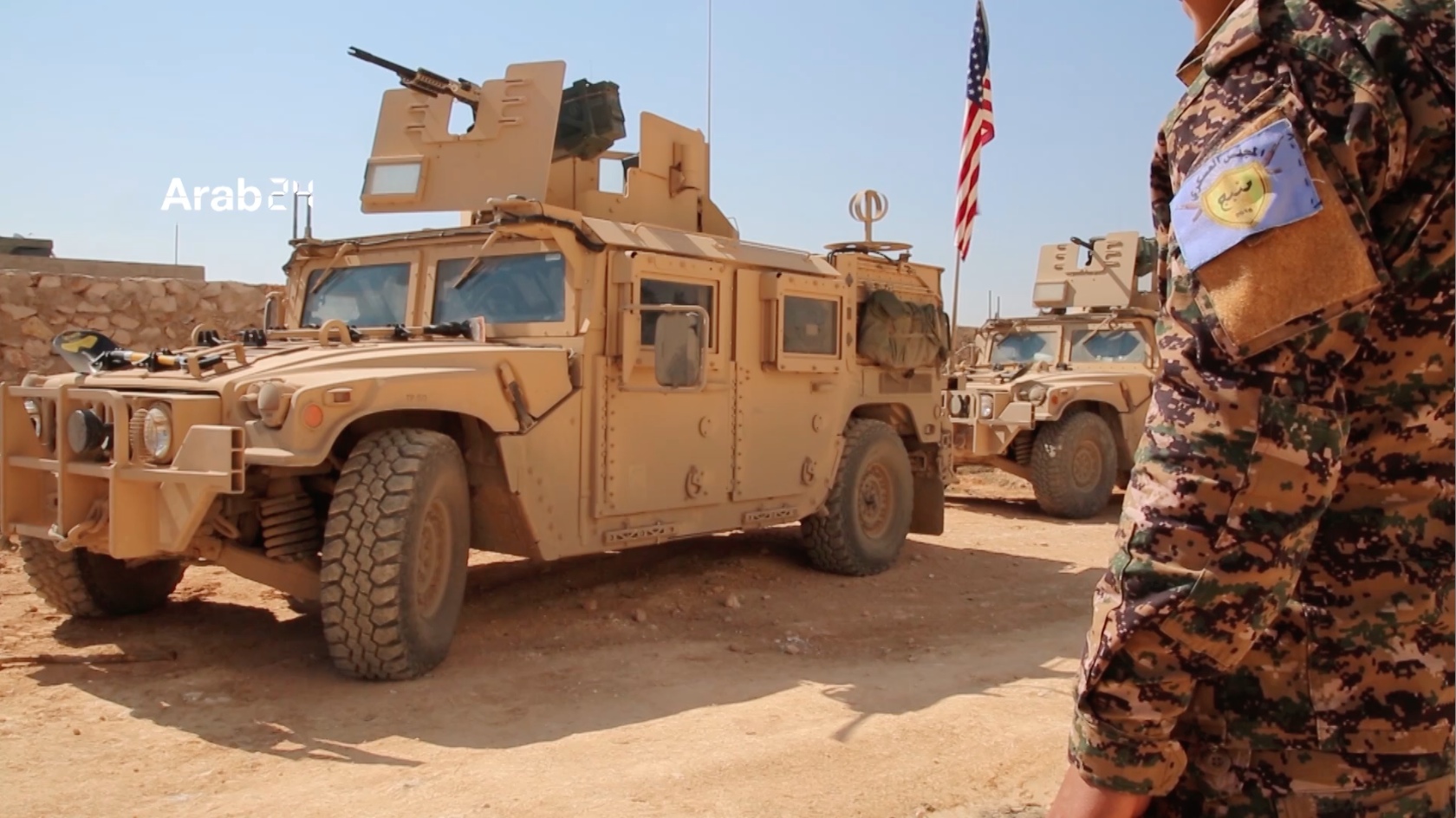

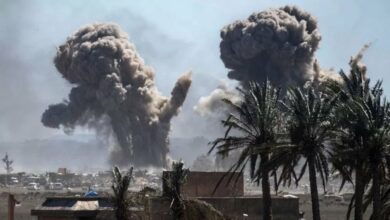
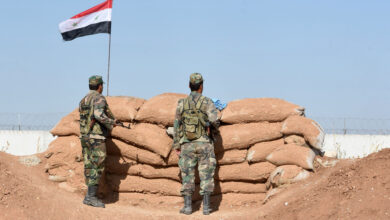
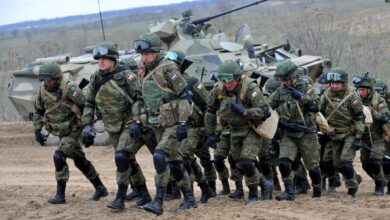
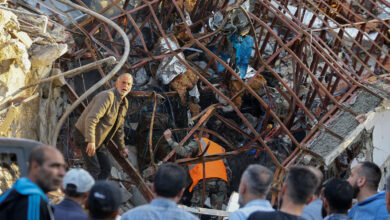

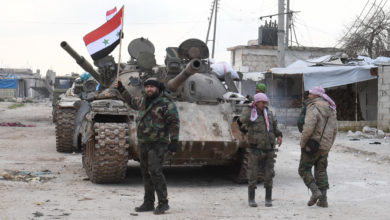
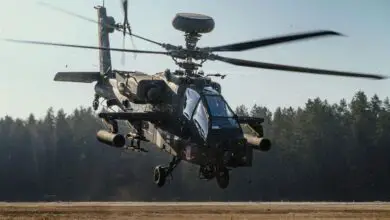

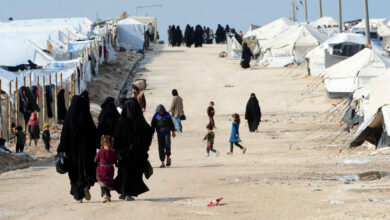
4 Comments